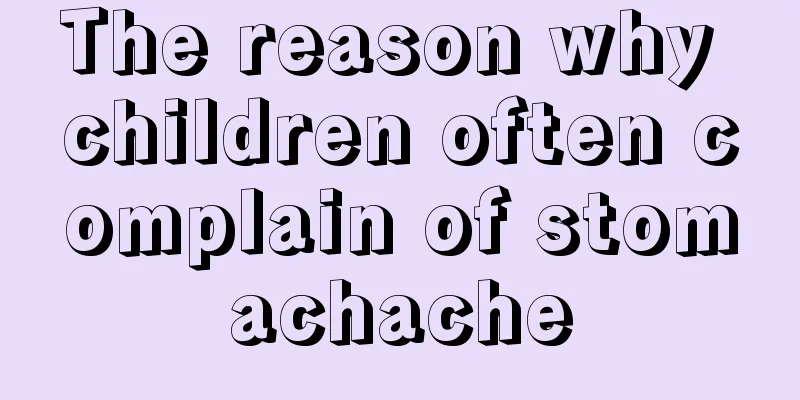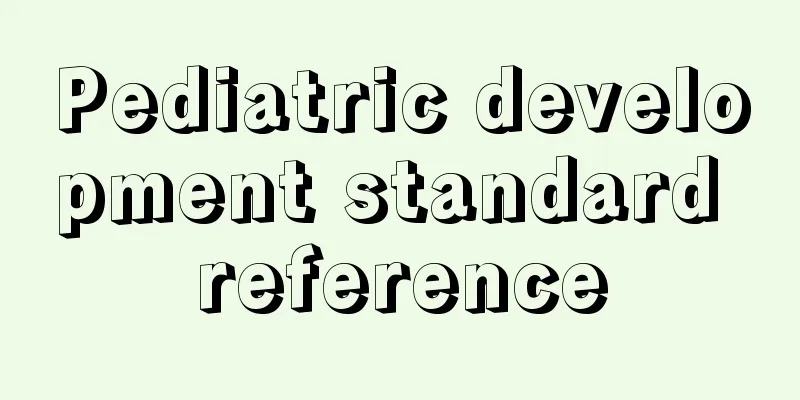What are the symptoms of enlarged tonsils in children?

|
Tonsils are important organs in our body and are also the area where children are most likely to have problems. Among them, enlarged tonsils is a condition that young children are very prone to. Since enlarged tonsils can cause considerable harm to children, it is necessary to be aware of the symptoms and detect them in time and actively treat them. So, what are the symptoms of enlarged tonsils in children? Let’s take a closer look. 1. Snoring: Snoring is a major symptom of enlarged tonsils, which is caused by enlarged tonsils blocking the airway. In severe cases, it can develop into sleep apnea, leading to hypoxia at night. Long-term hypoxia prevents children from getting a good rest at night, causing them to stay in bed in the morning, feel tired during the day, have a bad temper, and become easily irritated. In addition, children who snore frequently are four times more likely to develop ADHD than ordinary children. These children often show signs of inattention in class and are hyperactive. 2. Nocturnal enuresis: American ENT experts have found that children with enlarged tonsils often wet the bed at night. This may be because enlarged tonsils cause children to have irregular breathing at night, sleep apnea, and the brain is in a state of hypoxia, unable to control the bladder contraction muscles, resulting in urination awareness disorder. 3. Obesity: Obese babies usually have heavy phlegm and are prone to coughing up phlegm. In addition, enlarged tonsils and thick fat in the neck and chest squeeze the airway, increasing the resistance of the respiratory tract, seriously affecting the quality of sleep at night, thus endangering the baby's physical and mental health. At the same time, obese babies tend to be lazy, listless during the day, and unwilling to exercise, forming a vicious cycle that causes the child's weight to continue to increase. 4. Recurrent upper respiratory tract infections: Babies with enlarged tonsils are prone to recurrent acute upper respiratory tract infections, such as acute suppurative tonsillitis, acute otitis media, rhinitis, sinusitis, and bronchitis. Children often experience symptoms such as throat discomfort, voice changes, occlusive nasal sounds when speaking, coughing and spitting, asthma, and low fever. The above is an introduction to the symptoms of enlarged tonsils in young children. I hope it will be helpful to parents. There are many symptoms of enlarged tonsils in young children. If parents find that their children have similar conditions in daily life, they must pay attention to it, take them to a regular hospital for diagnosis in time, and then take targeted methods for treatment to avoid greater harm. |
<<: What is the reason for nose bleeding in a 1 and a half year old baby?
>>: What is the normal range of a child's pulse?
Recommend
Features of rheumatic heart disease in newborns
What is rheumatic heart disease in children? I be...
How much does a four-month-old baby eat?
At four months old, the baby's appetite start...
What to do if your child lacks a sense of security
In real life, children often give people the impr...
Several recipes for baby's health in autumn
I believe everyone must know the importance of he...
What should I do if my child has a short tongue tie?
The so-called tongue tie is actually the tongue t...
Children's mosquito repellent stickers
As the weather gradually gets warmer, more and mo...
What is persistent diarrhea in children?
Speaking of diarrhea, I believe many people are f...
What should I do if my child has a fever of 45 degrees?
Fever is a common condition for everyone. Fever i...
What to do if your three and a half month old baby doesn't like to drink milk
The physical development of babies is very import...
What causes a child's nosebleed?
It is quite worrying when a child has a nosebleed...
Four month old baby poops green
If the poop of a four-month-old baby is green, pa...
Treatment of lupus nephritis in children
We know that children's physical health is wh...
What to do if your baby has herpes in his throat
Herpes is a common disease around us. Many adults...
How to treat yellow urine in babies
If the baby's urine is yellow, parents must p...
What to do if your 2 month old baby has green poop
We all know that taking care of a baby is not an ...









